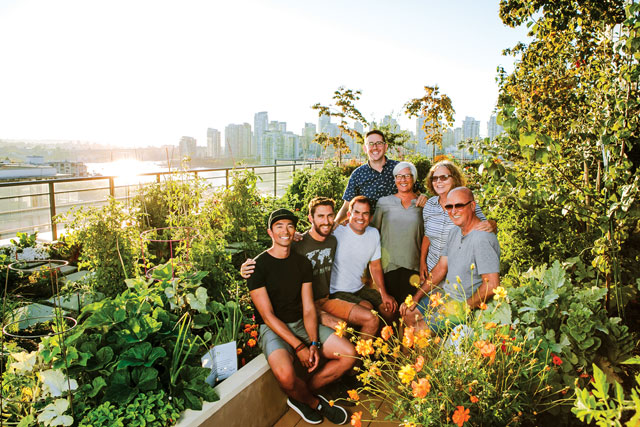The Bahá’í teachings advocate for the seamless interweaving of spiritual principles with tangible actions, emphasizing the harmonious co-creation of humanity’s collective journey with the Divine. One compelling metaphor that encapsulates this dynamic is the cultivation of friendships among plants and people, illustrating the intrinsic connections that bind us. In this exploration, we unveil the profound implications of these teachings, focusing on the ethical imperatives of fostering relationships and the ecological consciousness of nurturance.
1. The Garden of Humanity
Envision a garden, a microcosm of diverse flora, each species flourishing in unique ways yet collectively contributing to the ecosystem’s vitality. The Bahá’í perspective posits humanity as a similar garden, where individuals represent various plants, each possessing distinct characteristics and potentials. This metaphor extends beyond mere coexistence; it signifies that our growth is contingent upon mutual support and interdependence.
In nurturing friendships among people, we cultivate a space in which diversity is not just tolerated but celebrated. The wisdom found in the botanical world teaches us that diversity leads to resilience. Just as a single type of plant may succumb to disease or adverse conditions, so too can societies weaken in homogeneity. Therefore, cultivating friendships among different cultures, beliefs, and backgrounds becomes essential in creating a vibrant, thriving community.
2. The Art of Nurturance
Nurture is an art that transcends both botany and interpersonal relationships. In a garden, plants require specific conditions to thrive: the right amount of sunlight, appropriate soil composition, and adequate water supply. Conversely, relationships demand similar attention—time, empathy, and understanding. Just as pruning a plant encourages new growth, carefully tending to friendships fosters deeper connections and mutual enrichment.
Moreover, the Bahá’í teachings extol the virtues of service and selflessness. When individuals contribute to the betterment of others, they partake in a divine co-creative process. This aligns seamlessly with the idea of cultivating friendships; selflessly supporting a friend in times of need mirrors a gardener’s vigilance in protecting vulnerable plants from harm. Such synergistic relationships amplify resilience, both in individuals and communities.
3. The Interconnectedness of Life
Considering the ecological symbiosis found within nature, a salient aspect emerges: interconnectedness. Each plant intimately depends on myriad organisms for survival—from the soil’s microorganisms that facilitate nutrient absorption to the pollinators that ensure reproduction. Likewise, human beings thrive in networks of relationships, offering support and strength to one another.
The Bahá’í teachings emphasize the oneness of humanity, advocating for a dissolution of barriers that impede friendship and understanding. Just as a gardener must consider the entire ecosystem when planting a seed, so too must individuals recognize their role within the societal fabric. Actions that foster connections resonate far beyond their immediate context, contributing to a more cohesive and understanding world.
4. Cultivating Friendships as an Act of Worship
Cultivating friendships transcends social etiquette; it is an act of devotion, reverberating with the Divine’s call for unity and love among humankind. In Bahá’í literature, the significance of genuine friendships is illuminated as a path to spiritual growth. By nurturing relationships, individuals partake in a sacred duty to reflect the divine qualities of compassion and altruism.
This commitment to friendship infuses daily interactions with purpose, encouraging individuals to view each other through a lens of reverence. Just as a gardener sees potential in every seedling, recognizing that with care it can blossom into something magnificent, so too must we view our relationships as opportunities for growth, enlightenment, and unity. In this light, each act of kindness, each supportive gesture, becomes a strand in the intricate tapestry of collective humanity.
5. Reflecting Divine Attributes in Relationships
The cultivation of meaningful relationships also serves as a mirror reflecting the Divine attributes. Love, forgiveness, and patience are invaluable traits that support personal growth and community harmony. The act of nurturing friendships embodies these qualities, affirming the innate potential within all individuals. Much like the gentle care bestowed upon a delicate flower, our friendships flourish when infused with love and respect.
Patience, in particular, cannot be overstated. Just as a gardener waits with anticipation for the slow emergence of a bloom, individuals must exercise patience in relationships, allowing them to develop organically. This patience fosters an environment where love, understanding, and support can flourish, enriching both parties involved.
6. Conclusion: The Harvest of Co-Creation
As we delve into the Bahá’í teachings on co-creating with God through the cultivation of friendships, we recognize that the process embodies both challenge and reward. By engaging in a cultivation practice that is mindful and intentional, individuals can sow seeds of unity, compassion, and understanding. The fruits of such labor lead to an enriched society, bursting with the vibrancy of interconnected lives.
In imitating the intricate relationships found in nature, we unlock the potential for a flourishing garden of humanity. Each relationship nurtured is a testament to the profound symbiosis possible in our world. By embracing the Bahá’í teachings, let us endeavor to cultivate the friendships that allow us to thrive together, reflecting the divine light in our community and beyond.
